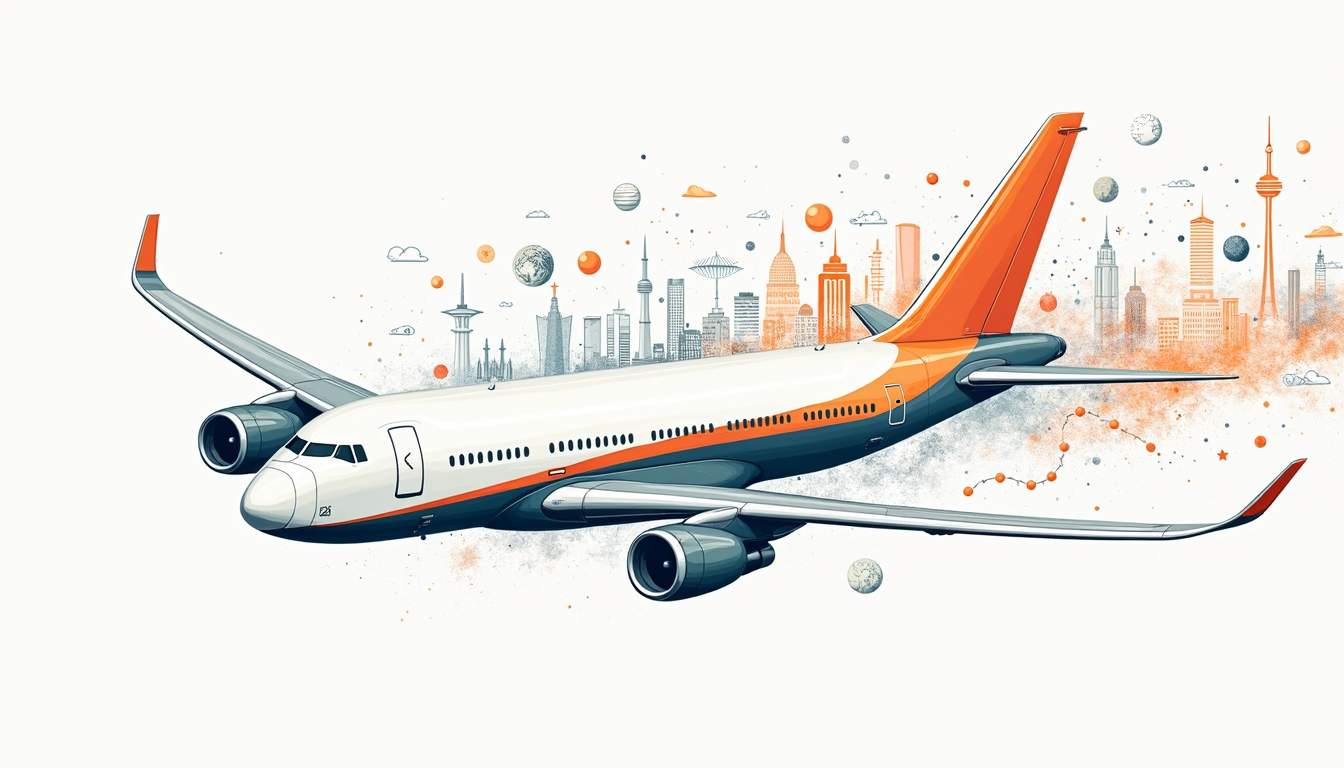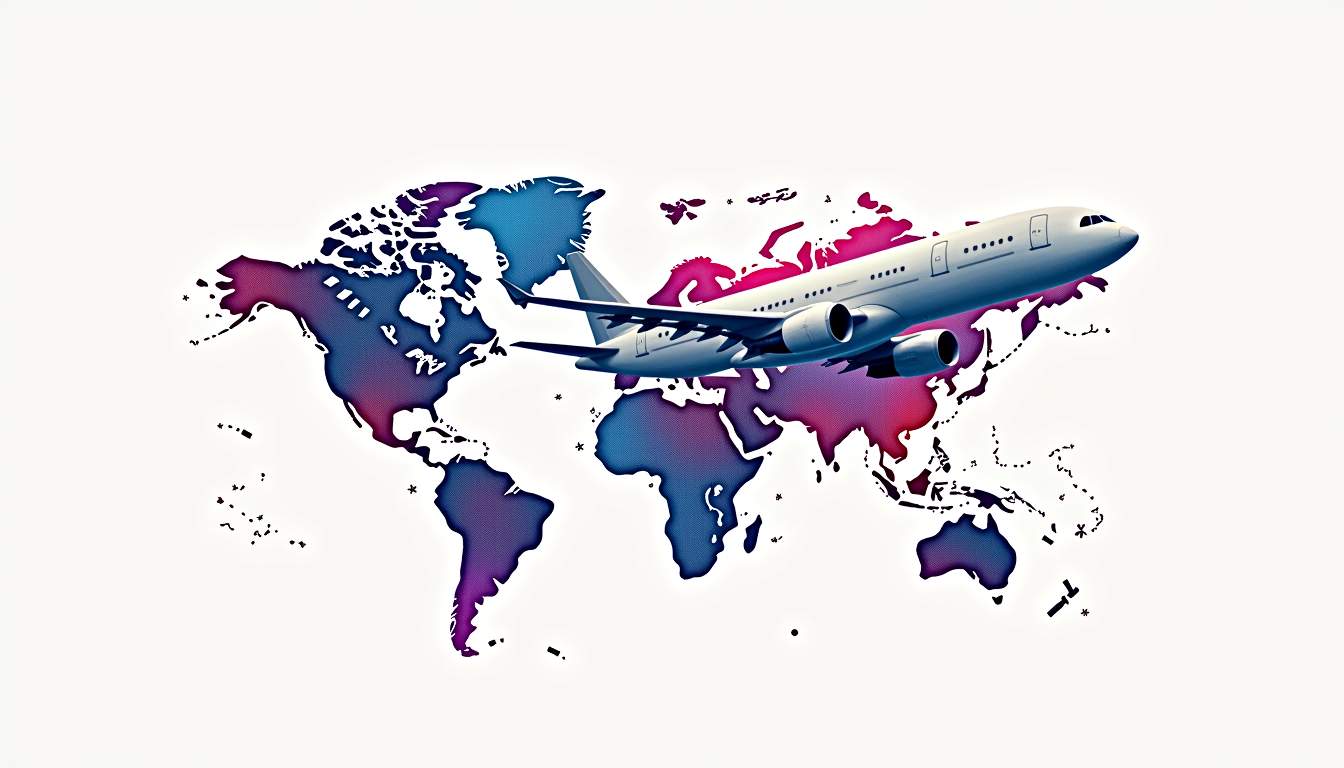The landscape of international air freight is undergoing a significant transformation, influenced by technological advancements, changing consumer demands, and global economic shifts. As businesses strive for efficiency and sustainability, the air freight industry is adapting to meet these challenges. This article explores the emerging trends and innovations that are shaping the future of international air freight.
Technological Advancements in Air Freight
Automation and Robotics
Automation is revolutionizing the air freight industry, streamlining operations and reducing human error. Automated sorting systems, for example, enhance the speed and accuracy of package handling in warehouses and distribution centers. Robotics are also being deployed for loading and unloading cargo, which not only increases efficiency but also minimizes the risk of injuries associated with manual labor.
Moreover, the integration of artificial intelligence (AI) in logistics management systems is enabling companies to optimize their supply chains. By analyzing data patterns, AI can predict demand fluctuations, allowing businesses to adjust their shipping strategies accordingly. This level of foresight is invaluable in an industry where timing is crucial. The use of drones for last-mile delivery is also gaining traction, providing a rapid solution for transporting goods to their final destinations, particularly in urban areas where traffic congestion can cause delays.
Blockchain Technology
Blockchain technology is another innovation making waves in the air freight sector. By providing a secure and transparent way to record transactions, blockchain enhances traceability and accountability throughout the supply chain. This technology allows stakeholders to track shipments in real-time, reducing the risk of fraud and improving trust among parties involved.
Furthermore, blockchain can streamline documentation processes, which often involve extensive paperwork and can lead to delays. Smart contracts, powered by blockchain, automate compliance checks and payment processes, ensuring that all parties fulfill their obligations before a transaction is completed. This not only accelerates the shipping process but also reduces administrative costs, allowing companies to allocate resources more effectively. The potential for blockchain to create a decentralized network of information sharing could also lead to improved collaboration among logistics providers, shippers, and customs authorities, fostering a more integrated and efficient global air freight system.
Shifts in Consumer Behavior
Demand for Speed and Reliability
In today’s fast-paced world, consumers expect rapid delivery of goods. This demand for speed is driving air freight companies to enhance their services. Businesses are increasingly turning to air freight as a viable option for time-sensitive shipments, particularly in sectors such as e-commerce and pharmaceuticals, where delays can have serious consequences. The rise of same-day delivery options has set a new standard, pushing logistics providers to innovate and streamline their operations to meet these heightened expectations. As a result, we are witnessing the emergence of advanced logistics technologies, including automated sorting systems and drone deliveries, which are designed to expedite the shipping process.

Reliability is equally important. Customers are not just looking for quick delivery; they want assurance that their packages will arrive on time and in perfect condition. To meet these expectations, air freight providers are investing in better tracking systems and customer communication tools, ensuring that clients are informed throughout the shipping process. Enhanced visibility through real-time tracking apps allows consumers to monitor their shipments, providing peace of mind and fostering trust in the service. Furthermore, air freight companies are increasingly focusing on building strong partnerships with ground transportation providers to ensure seamless transitions from air to land, thereby minimizing the risk of delays and improving overall service reliability.
Sustainability Concerns
As awareness of environmental issues grows, sustainability has become a critical consideration for consumers. The air freight industry, traditionally viewed as a significant contributor to carbon emissions, is under pressure to adopt greener practices. Companies are exploring alternative fuels, such as biofuels and electric aircraft, to reduce their carbon footprints. Innovations in aircraft design, including more fuel-efficient engines and lighter materials, are also being pursued to enhance overall efficiency and reduce emissions per shipment. This shift towards sustainability is not just a trend; it is becoming a fundamental aspect of corporate responsibility for many logistics companies.
Additionally, many businesses are implementing carbon offset programs, allowing customers to contribute to environmental initiatives when shipping their goods. This not only helps mitigate the impact of air freight on the environment but also appeals to eco-conscious consumers who prioritize sustainability in their purchasing decisions. Some companies are going a step further by partnering with environmental organizations to plant trees or support renewable energy projects, creating a tangible impact that resonates with their customer base. As consumers become more informed about the environmental implications of their choices, the demand for transparency in sustainability efforts is likely to increase, prompting air freight companies to continuously refine their practices and communicate their commitments effectively.
Regulatory Changes and Global Trade Dynamics
Impact of Trade Agreements
International trade agreements play a crucial role in shaping the air freight landscape. Recent agreements have facilitated smoother trade routes and reduced tariffs, encouraging businesses to explore global markets. As trade barriers diminish, air freight companies are finding new opportunities to expand their services and reach a broader customer base.
However, these agreements can also lead to increased competition. As more players enter the market, established companies must innovate and differentiate their services to maintain their competitive edge. This dynamic environment is pushing the industry toward greater efficiency and improved customer service. For instance, companies are increasingly investing in technology to optimize logistics and enhance tracking capabilities, allowing customers to monitor their shipments in real-time. Furthermore, the rise of e-commerce has significantly influenced air freight demand, as businesses seek faster delivery options to meet consumer expectations for rapid service.
Compliance and Security Regulations
With the rise in global trade comes the need for stringent compliance and security measures. Regulatory bodies are continuously updating their requirements to address emerging threats and ensure the safety of air cargo. This necessitates that air freight companies invest in robust security protocols and training for their personnel.
Additionally, compliance with customs regulations is becoming increasingly complex. Air freight providers must navigate a maze of rules and documentation requirements, which can vary significantly from one country to another. To streamline this process, many companies are adopting digital solutions that simplify customs clearance and enhance compliance tracking. The integration of blockchain technology is also gaining traction, as it offers a transparent and tamper-proof method for recording transactions, which can significantly reduce the risk of fraud and errors. As the landscape continues to evolve, companies that proactively embrace these technological advancements will likely find themselves at the forefront of the industry, better equipped to handle the challenges of global trade compliance.
Emerging Markets and Globalization
Growth in Emerging Economies
Emerging markets are becoming increasingly important players in the global air freight industry. Countries in Asia, Africa, and Latin America are experiencing rapid economic growth, leading to a surge in demand for air cargo services. As these markets expand, air freight companies are seizing the opportunity to establish a presence and cater to the unique needs of local businesses.

This growth is not without its challenges. Infrastructure in some emerging markets may not be as developed as in more established regions, leading to logistical hurdles. However, innovative solutions, such as partnerships with local logistics providers and investments in infrastructure development, are helping to bridge these gaps.
Globalization and Supply Chain Diversification
Globalization has transformed the way businesses operate, leading to more complex supply chains that span multiple countries. As companies seek to diversify their supply chains to mitigate risks, air freight plays a pivotal role in ensuring that goods can be transported quickly and efficiently across borders.
However, this increased complexity also presents challenges. Companies must navigate geopolitical tensions, trade disputes, and fluctuating regulations. Air freight providers are adapting by offering flexible solutions that allow businesses to adjust their shipping strategies in response to changing conditions.
Innovations in Cargo Aircraft
Next-Generation Aircraft
The development of next-generation cargo aircraft is set to revolutionize the air freight industry. Manufacturers are investing in research and development to create more fuel-efficient and environmentally friendly planes. These innovations not only reduce operational costs but also align with the industry’s growing focus on sustainability.
Additionally, advancements in aircraft design are enabling larger payload capacities, allowing air freight companies to transport more goods in a single flight. This increased efficiency can lead to lower shipping costs and faster delivery times, benefiting both businesses and consumers.
Urban Air Mobility
Urban air mobility (UAM) is an emerging concept that could reshape the future of air freight in urban areas. By utilizing electric vertical takeoff and landing (eVTOL) aircraft, companies are exploring the possibility of delivering goods directly to consumers in densely populated cities. This innovative approach could alleviate traffic congestion and reduce delivery times significantly.
While UAM is still in its infancy, pilot programs and partnerships are being established to test its feasibility. As technology advances and regulatory frameworks evolve, urban air mobility could become a game-changer for last-mile delivery in the air freight sector.
Conclusion: A Transformative Future
The future of international air freight is poised for transformation, driven by technological advancements, changing consumer expectations, and evolving global dynamics. As the industry embraces automation, blockchain, and next-generation aircraft, air freight companies are better equipped to meet the demands of a rapidly changing market.

Moreover, sustainability is becoming a cornerstone of air freight operations, with companies actively seeking ways to reduce their environmental impact. As emerging markets continue to grow and globalization reshapes supply chains, the air freight industry must remain agile and innovative to thrive in this dynamic landscape.
In conclusion, the future of international air freight holds immense potential for innovation and growth. As stakeholders adapt to new challenges and opportunities, the industry is set to evolve in ways that enhance efficiency, reliability, and sustainability. The journey ahead promises to be exciting, with advancements that will redefine the way goods are transported across the globe.
Partner with Freighter Gator for Your Air Freight Needs
As the international air freight landscape continues to evolve with the trends and innovations discussed, your business deserves a partner that stays ahead of the curve. Freighter Gator is committed to providing you with fast, flexible, and reliable air cargo charter solutions tailored to meet the demands of a rapidly changing market. With our expertise in handling time-critical freight, from emergency automotive parts to oversized equipment and urgent humanitarian aid, we ensure your cargo arrives on time, every time. Ready to experience the future of air freight with a trusted partner? Request a Quote today and let us help you navigate the transformative future of international air freight.
